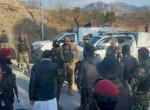2014 will be a turning point in Afghanistan. Power will be handed over to a new President after elections. The US military will complete its withdrawal. The Afghan National Security Forces (ANSF) will take over the security responsibility for the country. The prospects for all these transitions do not look promising. The new President will have to be a Pashtun in order to ensure broad-based ethnic support. President Karzai was parachuted to the presidency without elections in post-war circumstances in which the US and the West could impose their will. His re-election was mired in controversy, created primarily by his western supporters. Despite many levers at their command, the US and the West have not been able to manage Karzai. This shows how difficult it has been for the US and others to oversee the political process in Afghanistan even under military occupation. With the impending withdrawal, their control over politics will become even less. The larger question is whether a new Pashtun leader can emerge who can assure cross ethnic support? Will he able to deliver political stability and a degree of economic development in the very difficult circumstances that his country will be facing?
The US has signed a Strategic Partnership Agreement with Afghanistan, but the follow-up agreement- the Bilateral Security Agreement- on the status of the residual US forces that will remain in military bases has not been finalized. The US has failed to secure a suitable agreement in Iraq. If it fails in Afghanistan, it is threatening a “zero option”. Whether this is pressure tactics or is a veritable option is not clear. In any case, the fact that this is being considered shows that the US has no clear answer for the future. “Zero option” has the air of a “zero answer”!
The ANSF may have numbers and reports that they are performing well does not guarantee they will be able to operate successfully in a post-US withdrawal environment, especially if the US leaves in a scenario that is politically unsatisfactory for all sides. The ANSF lacks heavy weaponry, air power and sophisticated intelligence capability. Will they be able to really cope as a cohesive force?
The economic prospects in Afghanistan are not very reassuring despite the pledges of assistance made at Tokyo and the announced longer-term commitments made by countries not to abandon Afghanistan. If the US exercises a zero military option, will that be compatible with a major economic commitment prolonged in time, especially in a tight economic situation in the US and the Eurozone? Plans by countries to invest in Afghanistan not only depend on internal stability but also will take some years to yield results, enough to make a difference on the ground.
Adding to the problem is the general instability around Afghanistan. The internal situation in Pakistan is fraught despite recent elections. Iran has a new President but the nuclear dossier remains problematic and sanctions on Iran have been further tightened. The Arab world is in turmoil, with the so-called Arab Spring having withered very rapidly. Religious extremism is spreading and this gives political oxygen to such forces battling in Afghanistan.
India has to cope with the situation as it develops. We have faced the worst when the Taliban took over Afghanistan in the mid-90s. We know of course what the dangers are ahead and have tried to play our limited role in preventing untoward conditions from developing through our political and economic engagement with Afghanistan.
India is pursuing a very responsible policy in Afghanistan. We want a sovereign, stable, democratic and prosperous Afghanistan, one that is free from extremism and where human rights, especially those of women are respected. India is doing nothing contrary to the achievement of this objective in Afghanistan.
We are maintaining friendly relations with Afghanistan based on equality and respect for sovereignty. We are not interfering in Afghanistan’s internal affairs, arming any particular group or providing safe-havens for terrorists or anti-government political groups to carry on violent activities against the legitimate government of Afghanistan.
We have legitimate interests in Afghanistan as a neighbouring country and every right to be present there. The international community cannot accept the curtailment of Afghan sovereignty by endorsing the principle that the Afghan government should give precedence to the interests of any particular country over that of any other. It is for the Afghan government to take independent decisions in a responsible way. India has no intention to occupy the legitimate space that other neighbouring countries of Afghanistan seek there.
India has established a strategic relationship with Afghanistan. This is anchored in a longer-term bilateral and regional perspective. India has geo-political, strategic interests in this entire region that forms a part of our strategic neighbourhood. Afghanistan borders Central Asia and Iran, apart from China and Pakistan. India has had intimate age-old ties with Afghanistan, Central Asia and Iran, with the history of our country linked to this region over centuries.
Central Asia is landlocked and so is Afghanistan. The development of this region faces a particularly difficult challenge because of this. This entire region needs the broadest possible choices for its development. It is natural for it to look for enhanced ties with India as the biggest economy in Southern Asia that can substantially contribute to this objective. We are wiling to respond.
Afghanistan has huge mineral resources that await exploitation. India is ready to invest large sums in this sector, beginning with iron ore extraction. Afghanistan is ready to offer to India a natural resources corridor for development. For realizing this objective, India needs better access to Afghanistan, as Pakistan is not as yet willing to provide transit facilities through its territory to Afghanistan.
India is looking at the Chabahar port in Iran as an access route to Afghanistan as well as Central Asia. We have recently committed $100 million to this project. US/EU sanctions on Iran are a complication for such efforts to give Afghanistan alternative options for its trade and facilitate foreign investment there. The US government should take a positive view of Indian investments in Iran that are specifically directed at easing Afghanistan’s difficult situation, which will be important for stimulating the Afghan economy, at present too dependent on foreign assistance and income derived from the presence of foreign troops on its soil.
In developing trade and energy ties between Central Asia and the Indian subcontinent, a project that the US favours as part of the New Silk Road project, Afghanistan is a critical hub. We support the TAPI pipeline project that will bring Turkmenistan gas to Pakistan and India through Afghanistan. India can fruitfully participate in projects to increase electricity grids in the region to alleviate regional energy-related problems.
India is participating in several international efforts to contribute to development in Afghanistan, whether it is the Istanbul Process and the Heart of Asia conferences in Kabul in June 2012 and in Istanbul in April 2012, or the initiative we took ourselves to organize a Delhi Investment Summit on Afghanistan, also in June 2012, followed by the Tokyo Conference on aid to Afghanistan in July 2012.
India’s own bilateral aid to Afghanistan has reached $2 billion. Some see in this an effort by us to seek undue influence in Afghanistan. If India’s foreign assistance programme and the billions Indian companies are investing abroad are considered, this is not a very big sum. There is full participation of the Afghan authorities in selecting Indian assistance projects that are infrastructural as well as geared to meeting the basic requirements of people and localities spread over the country. A large number of our projects are in the Pashtun areas. India has earned great popularity because of the manner in which we have conducted ourselves.
Economic development in Afghanistan and the region is essential to check-mate the growth of extremist ideologies in the region and associated terrorist activity. These concerns are uppermost in India’s mind as we are most exposed as a country to terrorism and supporting ideologies. As a secular, multi-religious state, we are particularly sensitive to such threats. Any boost given to these extremist forces, even unwittingly, should be unacceptable as our security is threatened.
It is with concern therefore that we view the outreach by US, Britain and others to the Taliban. We are not against any genuine attempt at reconciliation if all sides want it on a basis that respects the red lines drawn by the international community for a dialogue with the Taliban. We find that these red lines are being blurred by NATO’s anxiety to withdraw from Afghanistan by 2014, whatever the ground situation.
Such a strategy gives the upper hand to the Taliban groups in Pakistan in negotiations as they know time is on their side.
The rhetoric remains that the reconciliation process should be Afghan-led and Afghan-owned, but the manner in which the dialogue is being structured does not suggest that it will be an independent intra- Afghan process. President Karzai has already distanced himself from the US initiative. We feel that nothing should be done behind the back of the Kabul government. Latest statements from persons close to President Karzai express the deep concern of the Kabul government about understandings that the US may have reached with Pakistan and the possibility of south and eastern Afghanistan being handed over to the Taliban, which could divide the country and trigger an all-out conflict.
The end-game in Afghanistan is being played out in an atmosphere of great suspicion and bickering amongst the principal parties involved. The manner in which the Doha office of the Taliban was opened has made matters worse. The conduct of the Taliban in declaring themselves the Islamic Emirate of Afghanistan made their own end-game clear.
The link between the Taliban and Pakistan is evident. One will have to wait and watch whether the declared US position that no single country will be allowed to dominate post-2014 Afghanistan can be sustained by it when its intention to withdraw from Afghanistan is so clear.
India has not been kept adequately in the picture about the dialogue with the Taliban, despite India’s vital concerns being involved. India suffered when the Taliban came to power in 1996. That was the only time India had no diplomatic relations with Afghanistan and terrorists were being trained on its soil for attacks against India. If the Taliban were to be accommodated again, India has reason to be concerned.
We find that the policies of our western friends in Afghanistan are neither sufficiently steady nor transparent.
The argument that the Taliban has various currents in it and there are “moderate” Taliban has been exposed as hollow by what has transpired in Egypt where the same arguments distinguishing between various strands in the Muslim Brotherhood and welcoming their assumption of power have proved devoid of worth.
India does not want conditions of ethnic conflict to be created again in Afghanistan. The international community must safeguard against it. The post 2014 situation in Afghanistan remains very uncertain as the country will be faced with a political and military transition even when the external danger to the country has not been neutralized.
Establishing democracy in Afghanistan by integrating forces into the polity that are currently threatening the country will be a most difficult enterprise.
The root of the problem must be dealt with, which is external support for Afghan extremists and their instrumentalization for achieving the military ambitions of a third country. So long as there are safe havens for extremists outside Afghanistan, the problems will not go away. If the Taliban retain influence in eastern and southern Afghanistan, it is because their staging grounds are outside.
India’s traditional ties have been with the Pashtuns in Afghanistan. A large number of our development projects are in Pashtun areas, which have been very well received by the local people. We support ethnic harmony in Afghanistan, with the Pashtuns adequately represented in governance, but this has to emerge through a democratic process, without the shadow of externally supported violence.
Our strategic partnership with Afghanistan is not directed against any third country. The primary element in this strategic relationship is not military. India is willing to contribute to the capacity building of the Afghan national security forces through training and supply of non-lethal equipment so that they can better provide security to the people after the withdrawal of foreign troops from the country. Our goals are primarily economically oriented. We do not want to supplant NATO.
In principle, however, India could provide a limited amount of combat equipment too, as sought by the Afghan government. The concerns of Pakistan should be irrelevant in this regard. Pakistan is having a military relationship with Sri Lanka unbothered by our sensitivities. China is arming Pakistan, providing it even strategic capabilities, without any one advising Pakistan to defer to Indian sensitivities about the security threat posed to us. The US is arming Pakistan too, disregarding our sensitivities.
For elements in the US to caution us against increasing our military engagement with Afghanistan because of Pakistani sensitivities is inconsistent with the policy choices they make in our region in their national interest. India could argue, as the US does, that our arms assistance to Afghanistan will not change the balance of power between it and Pakistan. Pakistan is a nuclear capable state with large and well-equipped armed forces, whereas Afghanistan has a fledgling, ill equipped force that is no match for the Pakistani military. Our decision on the question should be based on our judgment on how far we want to or can go in giving arms assistance to Afghanistan, not what Pakistan or the US thinks. In our own interest, we should be prudent.
It is a hugely perverse notion that the real problem in Afghanistan is India-Pakistan rivalry. Those who feel that their intervention in Afghanistan has not worked to stabilize the situation to the extent that they may have wanted and now want to cut costs at all costs, should not seek to transfer the responsibility for their failure on India’s shoulders.
India was not responsible for the rise of religious extremism in the region; it was not responsible for the civil war in Afghanistan after the Soviet departure; it did not put the Taliban in power in Kabul; it had no hand in the presence of Al Qaida and Osama bin Laden in Afghanistan; it had no responsibility for US/NATO military intervention in Afghanistan; the Taliban groups or the Haqqani group are not in India; NATO soldiers have not been killed by groups operating from Indian soil. If the US has had to resort to drone attacks against terrorists in Pakistan, it is not because of India.
We seek a friendly relationship with Afghanistan. We seek no exclusive relationship. Afghanistan should have friendly relations with all its neighbours. We are willing to work with all of them. India and China are already talking to each other on Afghanistan. There should be no problem in discussing Afghanistan with Pakistan in a constructive way that opens up the doors for transit facilities eventually. The new government in Pakistan should think along those lines, rather than allowing Pakistan’s policies to be guided by the ambitions of its armed forces.
We have been very constructive in our dealings with the US on the Afghan issue. We have supported the international military intervention in Afghanistan and the ouster of the Taliban regime from power. We have been sensitive to US equities and concerns in Afghanistan despite serious provocations from Pakistan, including the terrorist attacks against the Indian Embassy in Kabul and India-related targets there. We continue to be willing to work with the US in a positive and mutually beneficial way in Afghanistan.
On June 27, US Special Envoy for Afghanistan Ambassador Dobbins, sent to India to re-assure us about the US initiative to negotiate with the Taliban, did not convey the impression that the US was playing a sure hand, was confident about its strategy and had alternative options in view.
He said the US hoped for presidential candidates in Afghanistan that have cross-ethnic appeal. The US was not entering the dialogue with the Taliban with any certainty that it will start, how it will develop, whether progress will be made and whether it will result in diminished violence and peace. The Taliban had to say whether they will accept the conditions and meet the US and the Afghan High Peace Council. The issue of terrorism had to be directly addressed and that a pre-condition for starting talks was a statement that the Taliban will begin to distance themselves from the Al Qaida, but reaching an agreement will require concretely severing all ties. Ending violence was not a pre-condition for talks, but an agreement had to include cessation of hostilities and respect for the Afghan Constitution. He concluded by stating that it was not certain that negotiations will end the war but that it was worth trying.
Such a tentative and uncertain reading of the situation, without a clear and confident road map, justifies our concerns about the wisdom of taking a step to politically accommodate such a retrograde and obscurantist force as the Taliban with the assistance of the Pakistani military whose disruptive strategic ambitions in Afghanistan are in fact at the root of the problem.
(Based on a talk recently delivered on the Capitol Hill, Washington)
Published Date: 7th September 2013, Image Source: http://3.bp.blogspot.com









Post new comment